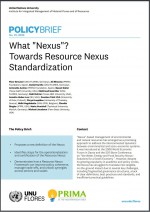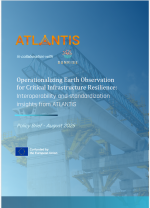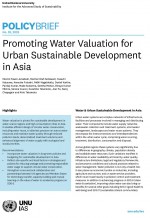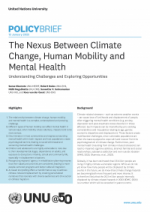Ensuring the Sustainable Future of the Rapidly Expanding Global Seaweed Aquaculture Industry – A Vision
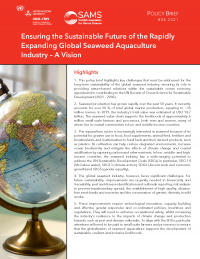
This policy brief highlights key challenges that must be addressed for the long-term sustainability of the global seaweed industry, ensuring its role in providing nature-based solutions within the sustainable ocean economy agenda and in contributing to the UN Decade of Ocean Science for Sustainable Development (2021 – 2030).
Seaweed production has grown rapidly over the past 50 years. It currently accounts for over 50 % of total global marine production, equating to ~35 million tonnes. In 2019, the industry’s total value was estimated at USD 14.7 billion. The seaweed value chain supports the livelihoods of approximately 6 million small-scale farmers and processors, both men and women, many of whom live in coastal communities in low- and middle-income countries.
The aquaculture sector is increasingly interested in seaweed because of its potential for greater use in food, food supplements, animal feed, fertiliser and biostimulants, and in alternatives to fossil fuels and their derived products, such as plastics. Its cultivation can help restore degraded environments, increase ocean biodiversity and mitigate the effects of climate change and coastal acidification by capturing carbon and other nutrients. In low-, middle- and high-income countries, the seaweed industry has a wide-ranging potential to address the UN Sustainable Development Goals (SDGs) in particular, SDG 14 (life below water), SDG13 (climate action), SDG6 (decent work and economic growth) and SDG5 (gender equality).
The global seaweed industry, however, faces significant challenges. For future sustainability, improvements are urgently needed in biosecurity and traceability, pest and disease identification and outbreak reporting, risk analysis to prevent transboundary spread, the establishment of high quality, disease-free seed-banks and nurseries and the conservation of genetic diversity in wild stocks.
These improvements require technological innovation, capacity building and effective gender-responsive and co-ordinated policies, incentives and regulations. They will need to enhance occupational safety, whilst increasing the industry’s resilience to the impacts of climate change and production hazards, such as pest and disease outbreaks. To align with the SDGs, particular attentions will need to be paid to small scale farmers and processors to ensure that the globalisation of seaweed aquaculture supports the development of sustainable, resilient and inclusive livelihoods.

